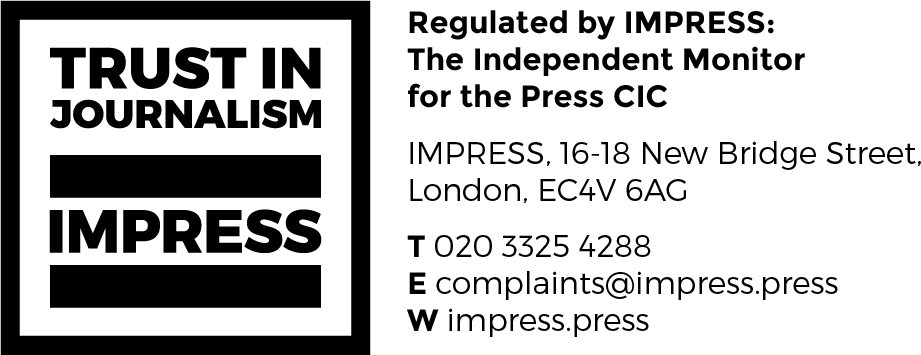Flagship: The Empire Strikes VAT

Recent changes in the tax treatment of short and long term charters in French waters had been expected for a long time following European Commission (EC) pressure. Initially, Italy, Cyprus, Malta and Greece had come under fire from the EC regarding their taxation methods. Now the changes have come into effect and VAT reduction is more difficult to attain, charter activity will certainly be impacted.
VAT was once seen as one of the easiest taxes to understand, but in some jurisdictions it is ridiculously complicated. In the UK you pay VAT on biscuits but not on cakes. On crisps but not tortilla chips. An attempt to add VAT to hot Cornish pasties in 2012 led to a government climb-down which was described as the “Omnishambles Budget”.
It is even more complicated for high-value assets that cross-borders – such as a superyacht in the Mediterranean. When you add charter it gets more even more complicated.
While there has been no formal confirmation from the EU, it appears that the decision of both French and Italian governments is a result of pressure from the Commission. Both countries implemented the new rules more or less at the same time and, when postponed due to Covid-19, made the rules applicable from November 1st.
Anthony Galea, MD Marine & Aviation, Vistra Malta told Superyacht Investor (SYI): “Incidentally (or not), it appears that the action undertaken by the EC commenced in 2017 against Malta, Cyprus and Greece was declared to be closed on the October 30th, 2020, after each of these countries confirmed their interpretation of the use and enjoyment provisions linked to yacht leases was confirmed to have changed. Closure was reported on the EU Commission website. Certainly, this is no coincidence.”
So why the change in legislation? EU rules already allow member states to reduce the taxable basis (the portion of the charter fee subject to VAT) in proportion to the use of the yacht outside EU waters. However, some states had taken a liberal view of these provisions and decided to reduce the taxable basis in proportion to the size of the yacht. The reason being that a yacht over a certain size was expected to spend a certain percentage of time outside EU waters during a charter.
States had taken a liberal view
Jean-Philippe Maslin, partner, Delviso Avocats, said French authorities had a more traditional reading of these provisions, with reduction only possible in proportion to time spent outside EU waters. “However, the authorities had also inserted a ‘catch-all’ provision that allowed a fixed reduction of 50% in case of difficulty to exactly determine the portion of time spent outside EU waters. Needless to say, everyone applied this fixed reduction, resulting in a breach of EU rules,” Maslin told SYI.
The French authorities had agreed to change these provisions provided Italy, its main competitor in the region, did the same. Italy had introduced its new legislation back in March, so France had done the same. However, both legislations were postponed until the end of the Covid-19 crisis. Since Italy decided to reimplement its legislation in November 2020, France had no other choice but to do so as well.
The changes in treatment mean it will be much harder to apply a reduction to the VAT applicable on a short term charter starting in France and could increase costs. However, the main impact lies elsewhere, said Maslin. “Indeed, this change in method of calculation also applies to long term leases in France. This means that it will be a lot less attractive to finance a lease through a French bank. This impact will be significant for the French yacht builders and leasing banks, as the costs of the financing for individual buyers will no longer be offset by the gain on the VAT on the yacht.”
On the flip side, the main advantage is that charterers who spend a lot of time outside EU waters will be able to apply a significant reduction on the taxable basis, “more than the fixed 50% which was previously allowed. This was already possible under the previous rules, but rarely applied”.
Malta has emerged victorious
Further south in the Mediterranean, after years of battling with the EC, Malta has emerged victorious after the EC decided to close the infringement procedures for non-compliance with EU VAT rules. It is expected that from now, VAT will only apply to the time spent in EU waters which will provide significant discounts for vessels which winter in Montenegro, the Caribbean or destinations further afield.
Galea said it is early days to comment on the effect of the changes. “The general rule is that VAT is due on the leasing fee in the case of long term leases, at the applicable rate in each country, and this cannot be reduced. Therefore, the old rules allowing for reductions based on deemed use or pre-set rates are history.”
Nonetheless, France, Italy and Malta, in guidelines published at the end of February of 2020, do acknowledge the ability to request the refund of VAT on the service provided during a lease. When use outside the EU can be proven, said Galea.
“I expect Malta to continue to develop and implement the idea together with Italy and France and ensure adherence to these new principles. Malta has an established yacht leasing market and is a ‘go to’ jurisdiction for any yacht owner or potential yacht owner looking to structure their yacht ownership,” concluded Galea.
In your inbox in five minutes
How can you prove time spent outside EU waters? VesselsValue’s head of superyachts, Sam Tucker, said he can have a satellite-based navigation report in your inbox in five minutes.
Using automatic identification system (AIS), a technology primarily used for maritime anti-collision purposes, the team deploys algorithms and data processing to produce navigation reports. These detail percentage of time spent in territorial and international waters between two given timestamps. That could be the start and end of a holiday or longer leasing period. It is also accepted by the authorities as a method of proving navigation.
Tucker told SYI: “We currently receive 200,000 signals per minute, which have to be cleaned and processed by both humans and machines. It’s worth noting that the signals don’t only come from satellites but ground ‘terrestrial’ stations too, giving higher coverage closer to land.”
The change in VAT treatments looks set to prompt a spike in European charters exiting EU waters. That will come as good news to international destinations like Montenegro or the Caribbean but less so to those that remain in the EU.
The most expensive yacht available for charter, according to VesselsValue, is Flying Fox, 136m in length and weighing 9,000GT, whose rate is currently listed at €3.5m per week. Without the reduction, the VAT for seven days would total €700,000. Even on smaller charters VAT adds up to a considerable sum. So, it would be unwise to think charterers will not leave EU waters to qualify for reduction.

